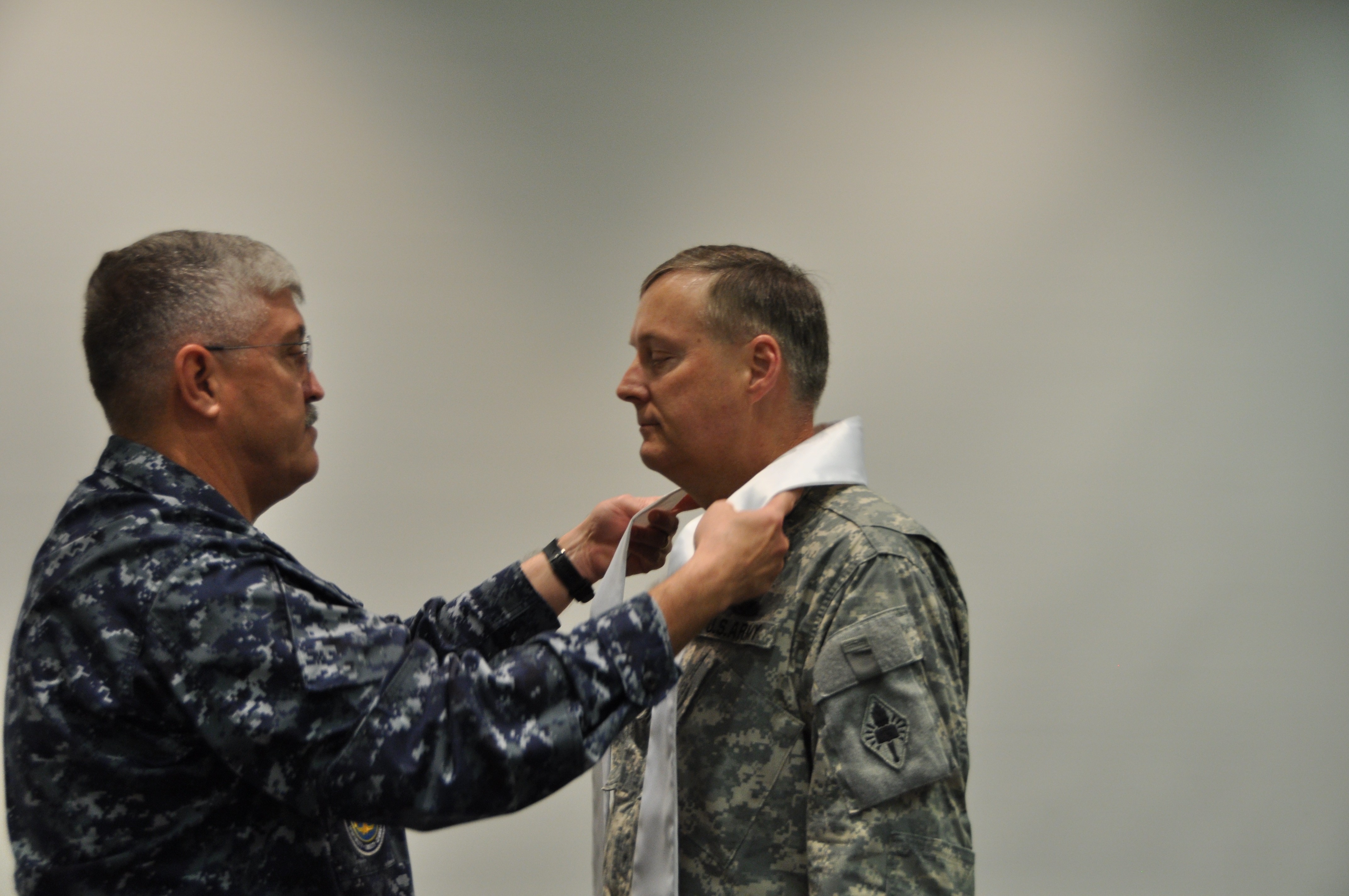
FORT JACKSON, S.C. -- Before a standing-room-only crowd, leadership of the Armed Forces Chaplaincy Center changed hands - and branches - Monday in a ceremony at the AFCC auditorium.
The former director, Air Force Chaplain (Col.) Steven E. Keith, commandant of the Air Force Chaplain Corps College, who held the position for one year, yielded leadership to Chaplain (Col.) David Smartt, commandant of the Army Chaplain Center and School.
"This is a campus of three distinctive and separate schools, co-located," Smartt said. "AFCC is a committee that facilitates cooperation for shared activities."
The position of AFCC director is held for one year, which means the Navy Chaplain School commandant will take the reins next year.
Monday's Passing of the Stole ceremony, is a rite not infrequently observed by the Army's Chaplain Corps. A stole is a vestment of cloth some clergy wear around their necks during religious services. In the passing ceremony, the outgoing leader's stole is removed by a third party, in this case Navy Chaplain (Capt.) Michael Langston, commandant of the Navy's chaplain school, and placed around the neck of the incoming leader.
"Many units in the Army use this ceremony to signify the transfer of pastoral leadership," Smartt said.
At the ceremony, Army Sgt. Maj. Monica Dixon, the AFCC liaison, read 2 Kings, 2:13-14, which describes the passing of the prophet Elijah's cloth from Elijah to Elisha. Keith explained to those assembled that no matter which branch the director belongs to, the stewardship of the AFCC is always toward one end.
"'Caring for the warfighter's soul' is the motto and vision of the Armed Forces Chaplaincy Center. This vision is what binds the Air Force Chaplain Corps College, the Army Chaplain Center and School, and the Naval Chaplaincy School and Center together," Keith said. "We educate and train chaplains, chaplain assistants and religious program specialists to best care for the warfighter's soul whether on land, air or sea. The faculty and staffs of the AFCC are amazing spiritual servant leaders with what is arguably the most important mission in our military. It has been an absolute thrill and joy to serve as the director of the Armed Forces Chaplaincy Center knowing that there is nothing more important than what we do."
Echoing the importance of caring for the warfighter's soul, Langston also mentioned the importance of mutual cooperation and multiculturalism among military branches.
"This monumental event symbolizes unity of three services dedicated to train chaplains to care for the warfighter's soul," Langston said. "Since the AFCC is a new organization within reference to the three chaplains' corps, it is important to establish new traditions and all ceremonial leaders have responsibility to make that happen. Monday's event established one of those new traditions as we set apart a new leader for the AFCC.
"The mantle of authority and management is a symbol of our co-location and neutral cooperation in training of chaplains, religious program specialists, and chaplain assistants. If we will lead them, they will follow us."

Social Sharing